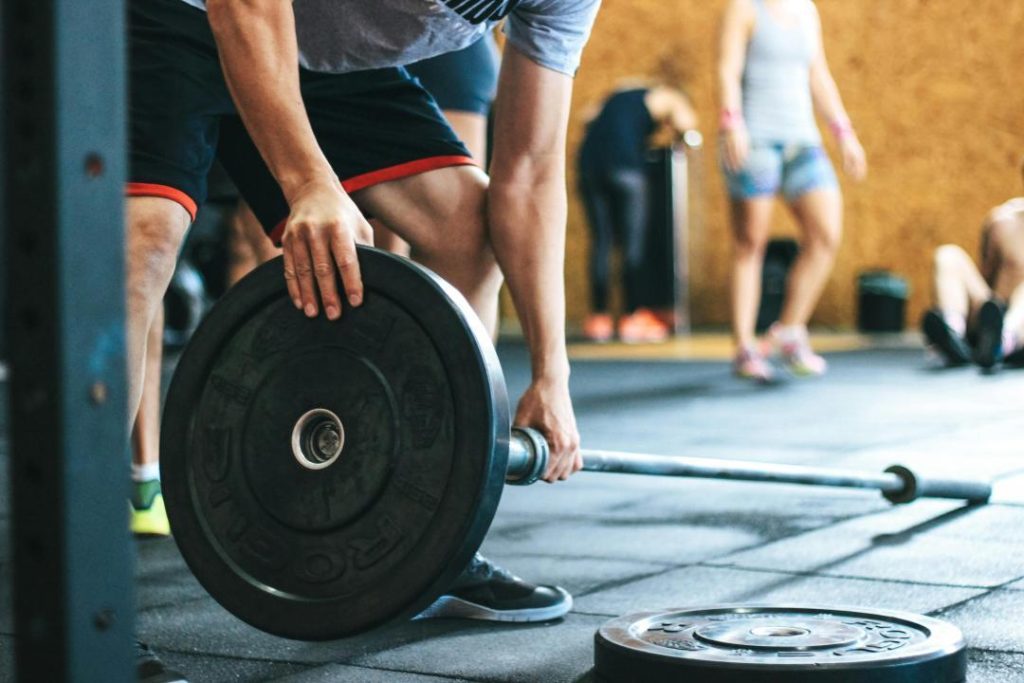
New Study Shows Many CrossFit Athletes Underfuel Workouts
CrossFit, a high-intensity strength and conditioning program, has become increasingly popular over the years. With its unique blend of functional movements, high-intensity interval training, and community-driven atmosphere, it’s no wonder why many athletes are drawn to this sport. However, a new study published in the Journal of the International Society of Sports Nutrition suggests that many CrossFit athletes may be neglecting a crucial aspect of their training: proper nutrition.
The study, which analyzed the diet and nutrition habits of 150 CrossFit athletes, found that many of them consume too few carbohydrates and overall calories, potentially hindering their performance and recovery. While protein intake was adequate, experts stress the need for better fueling to match the sport’s high demands.
As a CrossFit athlete, it’s essential to understand the importance of nutrition in optimizing your performance. Proper fueling can make all the difference between a mediocre workout and a exceptional one. In this post, we’ll delve into the study’s findings, discuss the implications for CrossFit athletes, and provide some valuable nutrition tips to help you fuel your workouts like a pro.
The Study’s Findings
The study, conducted by researchers at the University of Connecticut, aimed to investigate the dietary habits and nutrient intake of CrossFit athletes. The researchers analyzed data from 150 athletes, including their dietary patterns, macronutrient intake, and performance metrics such as 1-rep max (1RM) and 3-rep max (3RM) lifts.
The results were striking. The study found that:
- Only 30% of the athletes met the recommended daily intake of carbohydrates, which is essential for energy production and recovery.
- 60% of the athletes consumed too few calories, which can lead to fatigue, decreased performance, and increased risk of injury.
- Protein intake was adequate, with most athletes meeting the recommended daily intake. However, this may be due to the fact that many CrossFit athletes prioritize protein-rich foods, such as meats and eggs, over carbohydrate-rich foods.
Implications for CrossFit Athletes
The study’s findings have significant implications for CrossFit athletes. With their high-intensity workouts and demanding training schedules, CrossFit athletes require a precise balance of macronutrients to optimize their performance and recovery. Unfortunately, many athletes may be neglecting this crucial aspect of their training.
The consequences of underfueling can be severe. Athletes may experience:
- Fatigue and decreased performance
- Increased risk of injury
- Poor recovery and delayed onset of fatigue
- Impaired immune function and increased risk of illness
In addition, underfueling can also lead to decreased muscle growth and strength, as the body cannot support the demands of intense training without sufficient energy.
Nutrition Tips for CrossFit Athletes
So, what can CrossFit athletes do to improve their nutrition and optimize their performance? Here are some valuable tips to get you started:
- Focus on complex carbohydrates: Include complex carbohydrates such as whole grains, fruits, and vegetables in your diet. These foods provide sustained energy and support recovery.
- Consume adequate calories: Ensure you’re consuming sufficient calories to support your energy needs. Aim for a caloric surplus of 250-500 calories above your maintenance level.
- Prioritize protein-rich foods: Include protein-rich foods such as lean meats, fish, eggs, and dairy products in your diet. Aim for 1.2-1.6 grams of protein per kilogram of body weight.
- Incorporate healthy fats: Include healthy fats such as nuts, seeds, avocados, and olive oil in your diet. These fats support hormone production and provide sustained energy.
- Hydrate adequately: Adequate hydration is essential for performance and recovery. Aim for at least 8-10 glasses of water per day.
- Experiment with post-workout nutrition: Experiment with different post-workout nutrition strategies, such as consuming carbohydrates and protein within 30-60 minutes after your workout. Pay attention to how your body responds and adjust your strategy accordingly.
Conclusion
The study’s findings highlight the importance of proper nutrition for CrossFit athletes. By prioritizing complex carbohydrates, consuming adequate calories, and focusing on protein-rich foods, athletes can optimize their performance and recovery. Remember, proper fueling is essential for achieving your goals in CrossFit. Take the time to understand your nutrition needs and make adjustments to your diet accordingly.
Source:
https://thepfc.club/blogs/news/nutrition-tips-for-crossfit-athletes






